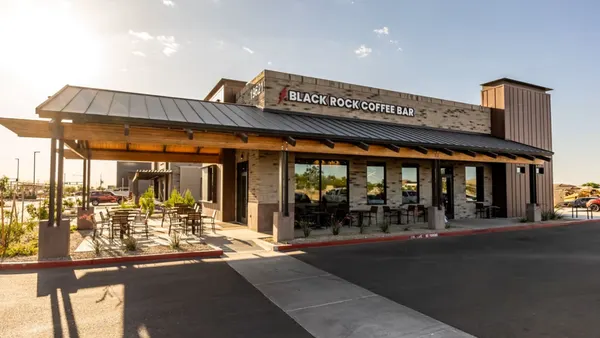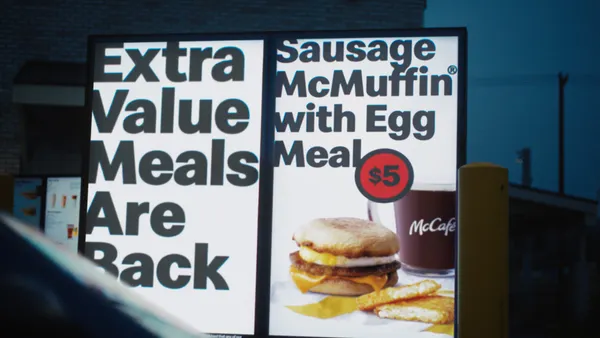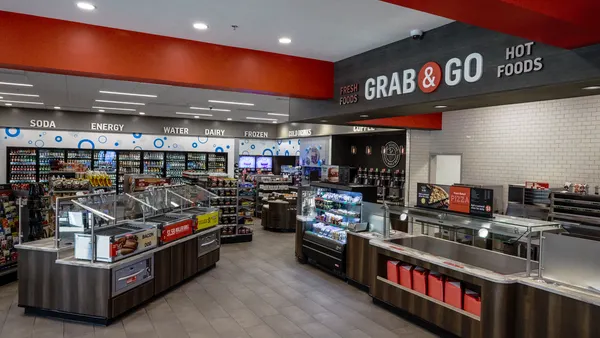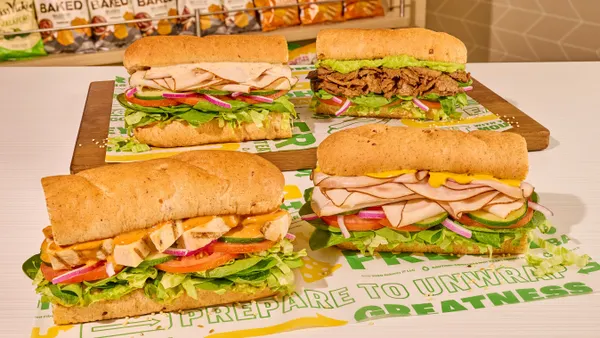Dive Brief:
- The U.S. unemployment rate inched slightly upward in October to 3.6%, just one-tenth of a percentage point higher than the 50-year low reported last month, according to the U.S. Bureau of Labor Statistics (BLS).
- The "food services and drinking places" sector led all job categories in growth during October, with 48,000 positions added. Employment in the sector is on an upward trend going into the holiday season, averaging 38,000 jobs per month over the past three months, per BLS.
- Two other sectors — healthcare and professional and business services — saw continued growth after leading September's jobs numbers. The manufacturing sector lost 36,000 positions last month, marking the first time in 2019 that the sector posted two consecutive months of job losses.
Dive Insight:
The job markets has held steady in the final months of 2019, indicating more of the same for U.S. employers looking to hire. The better-than-expected October total of 128,000 additional jobs means plenty of opportunities for job seekers, Irina Novoselsky, CEO of CareerBuilder, told HR Dive in an emailed statement.
"With so many opportunities for job seekers, employers will continue to face problems such as job hopping," Novoselsky said. "While job seekers remain in control, employers must keep their competitive edge and leverage new tools instead of relying on traditional, outdated methods."
This is particularly true for the restaurant and hospitality sector, where turnover averaged about 75% in 2018 compared to about 49% across the entire U.S. private sector, according to the National Restaurant Association. Food service operators will also have more competition during the holiday hiring season with job seekers more likely to look for employment at a retailer versus a restaurant. Chains have turned to offering more benefits and perks to try and retain and attract talent. Chipotle and Starbucks added mental health benefits to employee perks within the last few weeks. But a study from Restaurant Business also found that offering flexible scheduling will be key to attracting workers during the holidays.

This strong hiring bodes well for food service providers, however, since it means they are still positive about the economy and are willing to invest in more labor and additional locations. On the other hand, with so much growth in units, the U.S. restaurant market is becoming oversaturated and operators can't seem to find enough employees to keep staffing levels high enough to provide consistent quality customer service. Many restaurants are looking at alternative sources for labor including hiring people who were formerly incarcerated and senior citizens.















